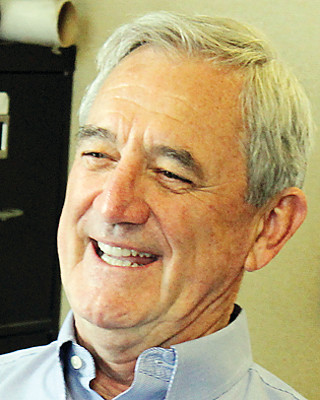Support the Timberjay by making a donation.
Nolan argues for mining with strict regulation
TOWER—Congressman Rick Nolan made his case for “mining the right way” during a visit to the Timberjay office earlier this month.
Nolan, a DFLer who represents the Eighth District, which …
This item is available in full to subscribers.
Attention subscribers
To continue reading, you will need to either log in to your subscriber account, or purchase a new subscription.
If you are a current print subscriber, you can set up a free website account and connect your subscription to it by clicking here.
If you are a digital subscriber with an active, online-only subscription then you already have an account here. Just reset your password if you've not yet logged in to your account on this new site.
Otherwise, click here to view your options for subscribing.
Please log in to continue |
Nolan argues for mining with strict regulation
TOWER—Congressman Rick Nolan made his case for “mining the right way” during a visit to the Timberjay office earlier this month.
Nolan, a DFLer who represents the Eighth District, which includes all of northeastern Minnesota, has been criticized by some members of his own party who are opposed to plans for copper-nickel and precious metals mining in the Superior National Forest.
But Nolan, who grew up on the Cuyuna Range, near Crosby, said there is room for mining, as long as it’s done right. “Throughout my career, I have been consistent,” he said. “I am for mining, but we’ve got to do it with good strong, strict rules, and financial assurances. My perspective is that you don’t have to choose between mining and the environment. We have the technology, and the brains, and, I think, the political will to do it right.”
While many mining supporters, and many Iron Range political leaders, have pushed to weaken environmental rules, such as the sulfate standard for companies that discharge into wild rice waters, Nolan said he doesn’t support weaker laws. “I’m not willing to downgrade the standards, and we don’t need to,” he said, noting that in discussions he’s had with mining company officials, they have assured him they can meet the current standard, of ten micrograms per liter.
According to Nolan, technologies like reverse osmosis allow the mining companies to meet almost any standard. Some have complained the technology is expensive to install and to operate, but Nolan said government needs to insist on it, even if it is more costly.
“We’re not going to let the mining companies come in and have their way with us,” said Nolan. At the same time, Nolan said he’s found a “new attitude” among mining company executives, who are more willing to comply with regulation than in the past.
Currently, Nolan said he sees the debate over mining being dominated by extremes. “On the one end of the spectrum, you have the Republican view, which is mining regardless of the consequences,” said Nolan. “On the other, you have people who say absolutely no mining,” he said. That includes no iron mining, he added.
Nolan said some mining opponents are even opposed to the proposals by the company Magnetation, which is seeking to reprocess iron mining waste rock to recover the minerals that may not have been economical to process in the early days of mining in the region. He said too many people aren’t well enough informed on the issue to make informed decisions on the various types of mining. “In the eyes of the general public, the distinctions tend to get blurred,” he said.
Nolan agreed that many who follow the mining issue closely, on both sides, are familiar with the distinctions, and that some of those who oppose copper-nickel mining are not necessarily opposed to iron mining.
Nolan, who served three terms in Congress in the 1970s before returning to public office in 2012, was intensely involved in the negotiations that led to the 1978 Boundary Waters Wilderness Act, and he said congressional discussions during that period indicated an intent to make other parts of the Superior National Forest open to more intensive resource extraction, particularly for timber and minerals. The law itself, which does call for intensified logging to make up for timberlands withdrawn from production with the former BWCA portal zone, does not make a similar call for intensified mining. But Nolan, who supported the creation of the BWCAW, insists it was part of the discussion at the time. “I was there, I was part of the debate,” he said. “I remember it pretty well.”






